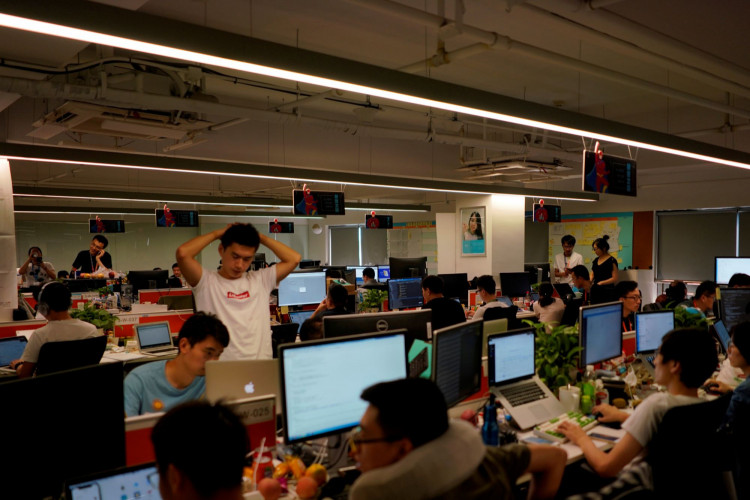Chinese Zoom competitors have dominated the Chinese market ahead of Zoom. Alibaba's DingTalk is being used by 10 million businesses and organizations and 120 million students in the country.
Last September, Beijing temporarily blocked the international version of the videoconferencing app Zoom in China. The restriction paved the way for local players such as Alibaba's DingTalk and Tencent's VooV that competed in the videoconferencing market.
According to the vice president of Tencent Cloud Lori Wu, the rising number of virus cases in China allowed the company to serve users who worked remotely during the lockdown period. As the company moved forward, Lori revealed that it plans on rolling out the services globally and would continue abiding with local regulations.
Zoom's spokesperson then noted that the App has suffered further restrictions in China this May. In the mainland, new user registration is only allowed for enterprise customers who sign up using authorized sales representatives. Users would be compelled to pay for the services, but are still free to join meetings hosted by select registered customers.
The two big Chinese video conferencing apps have significantly improved and expanded the reach of their services. At present, DingTalk serves 10 million business and organizations as well as 120 million students in China alone.
More people had resorted to DingTalk when the pandemic restrictions compelled Chinese citizens to work from home. Since then, the number of its participants tripled, especially when the App allowed the participation of up to 300 members.
Last April, Alibaba also launched an alternative app DingTalk Lite that allowed vital Asian markets such as Singapore, Hong Kong, and Japan to access the program. It is also offered with three languages, namely English, Japanese, and Traditional Chinese.
VooV, on the other hand, is the international version of Tencent Meeting. The program was launched in 2019 and is currently accessible in several countries such as Singapore, Japan, and India. It also shares the same 300-participant feature as DingTalk.
According to BBC News, it only serves 300 million daily active meeting participants. However, the company does not publish the number of daily users, both registered and non-registered ones.
According to the business forecasting and analysis company Transparency Market Research, the global market for teleconferencing technology was perceived to reach 16 billion USD by 2030. The value is 10 billion USD higher from last year's estimates.
Software analyst with DA Davidson Rishi Jaluria then said that Zoom primarily targets business meetings, not consumers. She also highlighted that the pandemic and pandemic restrictions generated consumer adoption to the App. Still, Zoom is not trying to monetize the consumers through advertisements.





